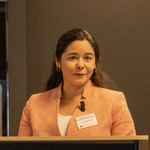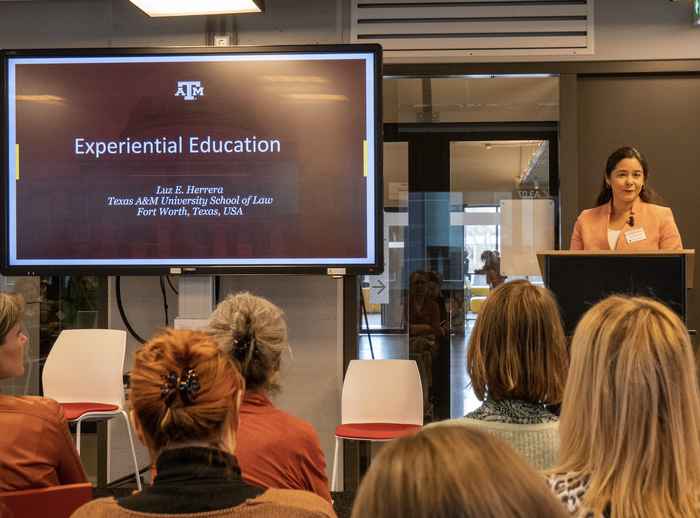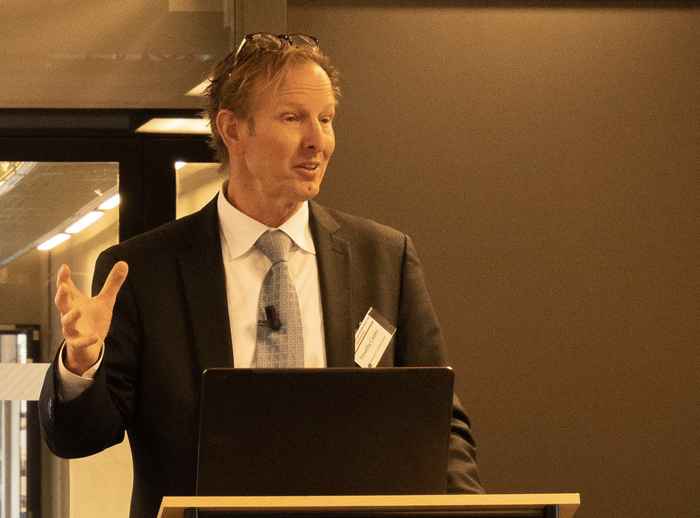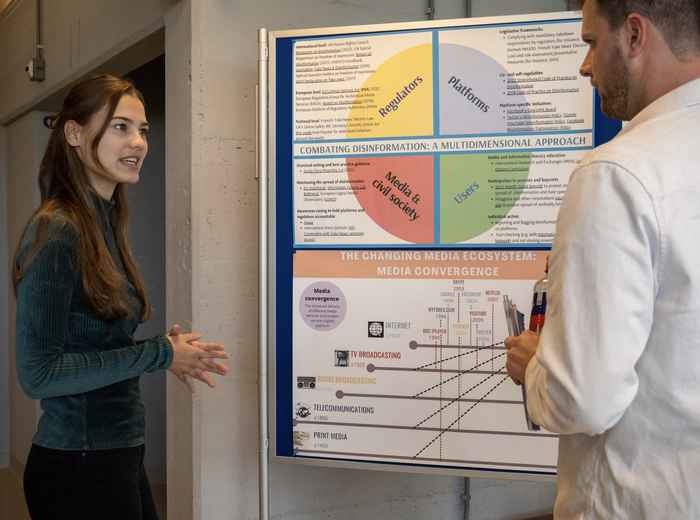What is the future of experiential legal education?
Impression of the conference on 30 March 2023
4 May 2023

For me, the clinical experience opened a door to say, 'Learn some skills that you can then take back to the type of communities you want to help.Luz Hererra (A&M Texas University)
Luz Hererra (A&M Texas University), opened the conference with a personal and inspiring keynote on how experiential learning inspired her as a young first-generation law student to reflect on her role as a lawyer in society. She stressed the importance of making mistakes. She believes that education should not strive to produce perfect lawyers, but lawyers who do not let mistakes put them out of business.
Reflection
Timothy Casey (California Western School of Law) emphasised, as the second keynote speaker, that experiential education and reflection are of great importance for students and for society. He indicated: 'If we're really good and really lucky, we can prepare the next generation of lawyers to lead our society in the right direction.' He also showed a handy model for the didactics of reflecting on professional identity.
Research on experiential education
Why is legal experiential education successful with students? That was the subject of Monique Volman's (UvA) keynote. According to her, the research results on the effects of experiential education at the UvA and HvA show that: 'Experiential education clearly contributes to self-efficacy. Students report how they built confidence in speaking to an audience or interacting with clients, just having to perform an activity. A safe and supportive learning environment is very important here.'
Conversation
During the event, there was also room for conversation and exchange. For instance, Linde Bryk (Bureau Clara Wichmann), Ellen Desmet (Ghent University), David Rossati (VU) and Sofia Larriera Santurio (UvA) discussed the value of clinical education for education and society as such. Timothy Casey, Nina Holvast (Erasmus University Rotterdam), Willem Jan Kortleven (Erasmus University Rotterdam) and Rosa Möhrlein (UvA) discussed the differences between problem-based education and experiential education.
In another session, the ethics of simulations were discussed by Karen Geertsema (RU), Thomas van Damme (UvA), Jet Tigchelaar (UU) and Iris van Domselaar (UvA). How do you create a 'good' simulation form? And to what extent should you expect students to be able to take both sides of a viewpoint, regardless of the sensitivity of the topic?
At the end of the day, there were poster presentations by students. They showed what they learned from experiential education and what inspired them in this type of teaching.


